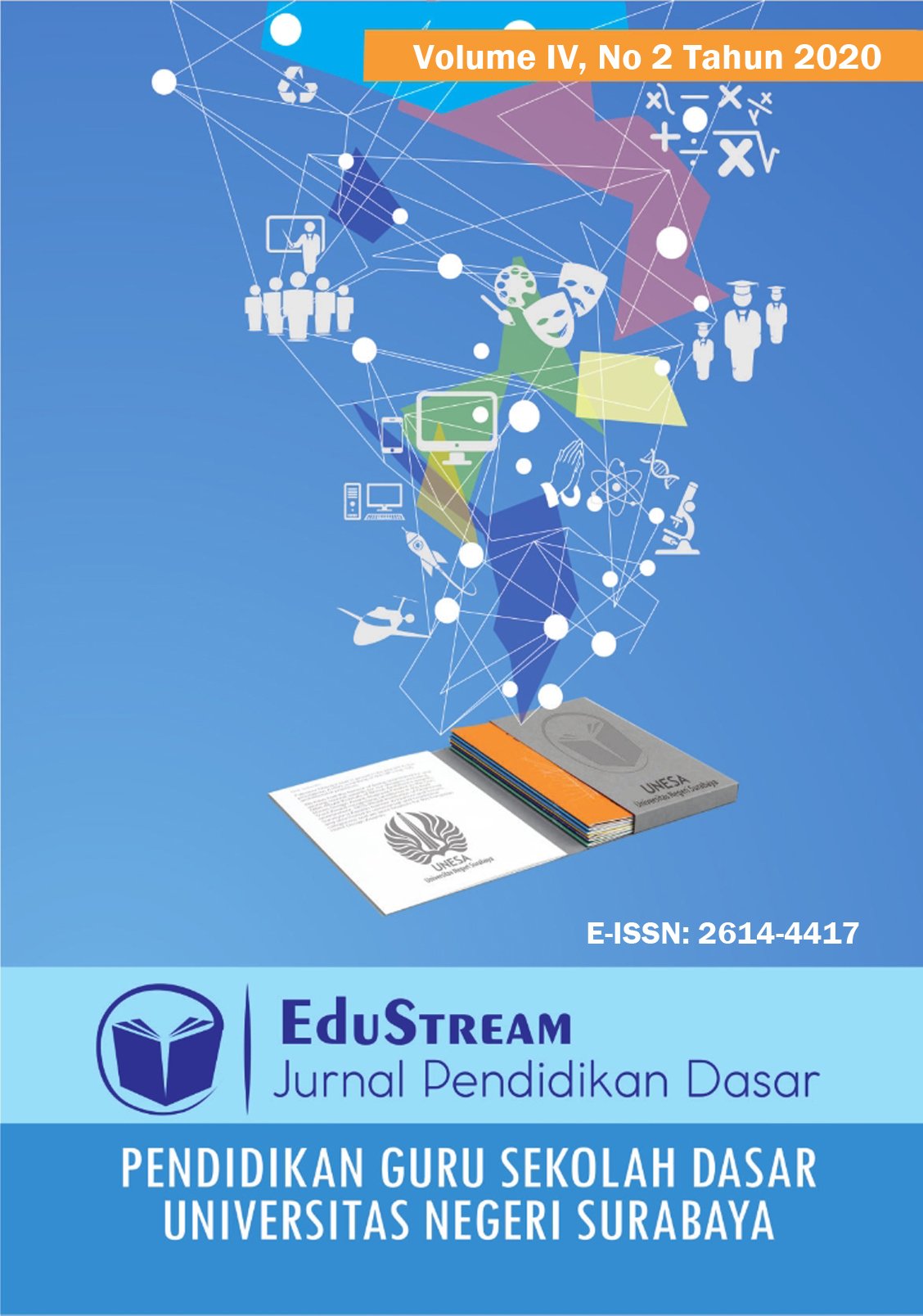Peningkatan Kemampuan Menulis Cerita Bagi Siswa Kelas IV Melalui Media Amplop Literasi
DOI:
https://doi.org/10.26740/eds.v4n1.p92-97Keywords:
writing stories, envelopes, literacyAbstract
The low ability of students in writing stories identifies issues that occur at SDN Canditunggal, this is because the infrastructure for distributing students' written works is still minimal or nonexistent. Especially in the era of technology like today, which can make students' motivation to write less and less. They are more interested in operating gadgets and looking for sources of knowledge from the internet. From these issues, it is then determined based on the APKL approach, namely actual, problematic, feasible, and feasible and ultrasound techniques (urgency, Seriousness, Growth) can be overcome using literacy envelope media. The literacy envelope media becomes a place for elementary students to distribute written works and actualization for them. The design of actualization activities using literacy envelope media includes conducting consultations with the principal, compiling learning implementation plans, making literacy envelope media, implementing pre-tests, carrying out the learning process, implementing post-tests, conducting evaluations and making actualization reports. By using the literacy envelope media, the ability to write stories for fourth grade elementary school students can be improved.References
Downloads
Published
How to Cite
Issue
Section
License
Authors who publish with this journal agree to the following terms :
The articles published in this journal are protected by copyright. The copyright remains with the authors of the articles, but the publishing license is held by Universitas Negeri Surabaya as the journal manager. This license, Creative Commons Attribution-ShareAlike (CC BY-SA), allows readers to copy, distribute, and adapt the work, provided that proper attribution is given to the original author and any modified work is published under the same license. This license grants the freedom to use the work both commercially and non-commercially, as long as it adheres to the terms outlined in the license.
 Abstract views: 675
,
Abstract views: 675
, PDF Downloads: 4245
PDF Downloads: 4245

















